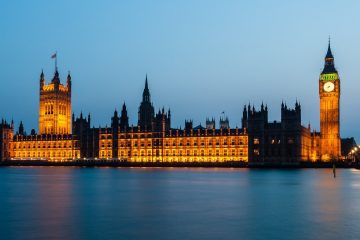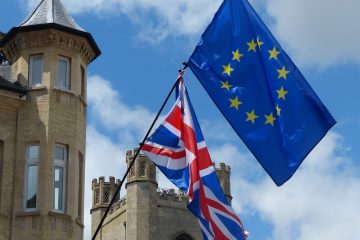Congratulations to Barbara Gibson and Lucy Nethsingha of the Liberal Democrats, and Catherine Rowett of the Green Party on their election to represent the East of England in the European Parliament!
This swing to pro-EU parties in our region means we have gone from having one strongly pro-EU MEP to having three, and that means three MEPs who will be fully engaged in the business of the European Parliament, working with colleagues from across the EU to defend our interests and our rights as EU citizens

At a time when EU citizens rights are under threat from right-wing populists, and after tens, even hundreds, of thousands of citizens were denied their vote in the European Parliament election here in the UK, the increase from one to sixteen in seats for the Liberal Democrats, and the substantial increase in seats for the ALDE group to which they belong in the European Parliament, for whom defending the rights of EU citizens is a key priority, is very welcome.
The environmental crisis is a key challenge which the EU faces, and the links between the principle groups and individuals advocating Brexit and those seeking to obstruct measures to prevent a climate disaster (and other environmental harms) are well established. The “Green surge” across the EU, including the election of seven Green MEPs in the UK, could not have happened at a more critical time.
It was a great pity that Labour MEP Alex Mayer did not retain her seat, she has been a great MEP and a strong supporter of our campaign to stop Brexit, but she was badly let down by her own party leadership.
The National Picture
And what about the national picture. Well, the five firmly pro-People’s Vote parties – the Liberal Democrats, the Greens, the SNP, Change UK and Plaid Cymru – won 40% of the vote compared to 35% for The Brexit Party and UKIP.

What is in no doubt that Labour’s poor performance is almost entirely due to losing support to parties that firmly back a People’s Vote, with huge swings against Labour in Northern cities such as Liverpool and Manchester where the vote share for pro-Brexit parties did not increase at all. This was despite Labour claiming on the basis of previous election results that they were the only Party that could stop Farage and offer the possibility of a new Brexit referendum, and the fact that the great majority of their MEP candidates were strongly pro-EU. We know that most people who did vote Labour did so for these reasons, or because they support the agenda of the Labour Party in the UK and the Social Democrats, the European Parliament party to which Labour MEPs belong. While the Labour Party was punished for not having a clear policy in support of a People’s Vote, it is an overwhelmingly pro-EU Party, and we should not forget that!
Majority of UK MEPS are now Pro-EU and Pro-People’s Vote!
The five firmly pro-People’s Vote parties plus the Labour Party won an overall majority of the vote – 56% – against just 44% for the Brexit Party, UKIP and the Conservative Party. The overall number of MEP seats won by parties giving full or qualified support for a People’s Vote is 39 (all ten Labour MEPs elected had declared that they back a People’s Vote), compared to 34 for The Brexit Party, UKIP and the Conservatives.
When we compare this year’s results to 2014 we find that the number of pro-EU MEPs has risen by ten from 29 to 39, while the number of anti-EU MEPs or MEPs from parties now committed to leaving the EU has declined from 44 to 34. A clear majority of UK MEPs are now strongly pro-EU! These results are in line with opinion polls over the last year, which show a consistent 6-10% majority in favour of staying in the EU (less than we’d like admittedly).
This mirrors the picture across Europe, where despite the media focus on the nationalist and populist parties, it was the Liberals and Greens who made by far the greatest overall gains in seats.
What happens now?
What does this mean? Well, it’s clear that the next leader of the Conservative Party will demand a new Brexit deal that the EU cannot agree to, pushing the UK towards a no-deal Brexit. If there ever was any chance of a soft Brexit compromise between the Conservatives and Labour Party it is now surely dead. We also know that there are more than a dozen Conservative MPs who will not agree to a no-deal Brexit, so it is very likely that later this year there will be a no confidence vote followed by a general election in which the Conservatives will campaign on a manifesto commitment to no-deal Brexit.
And what about Labour? The European Parliament results send a clear message to Jeremy Corbyn that he can no longer take for granted the votes of the overwhelming majority of Labour Party members and supporters who strongly back the UK’s membership of the EU.
This leaves Labour with a decision to make. It can enter the general election with a firm manifesto commitment to holding a People’s Vote – a new referendum on Brexit with the option to stay in the EU – and to campaign to remain in that referendum, or it can lose the next General Election. By backing a People’s Vote Labour will be acting in the interests of its members, voters and the country at large, and will be free to attack Brexit and the motivations of the leading Brexiters in a way that has been sadly missing until now.
The final take home from the European Election results is that the fight to stop Brexit is far from finished, indeed in a sense everything until now has been a long opening skirmish. The next few months will be tougher and more dangerous than ever, but after yesterday we do also know that we can win.
Let’s do it, lets stop Brexit!


